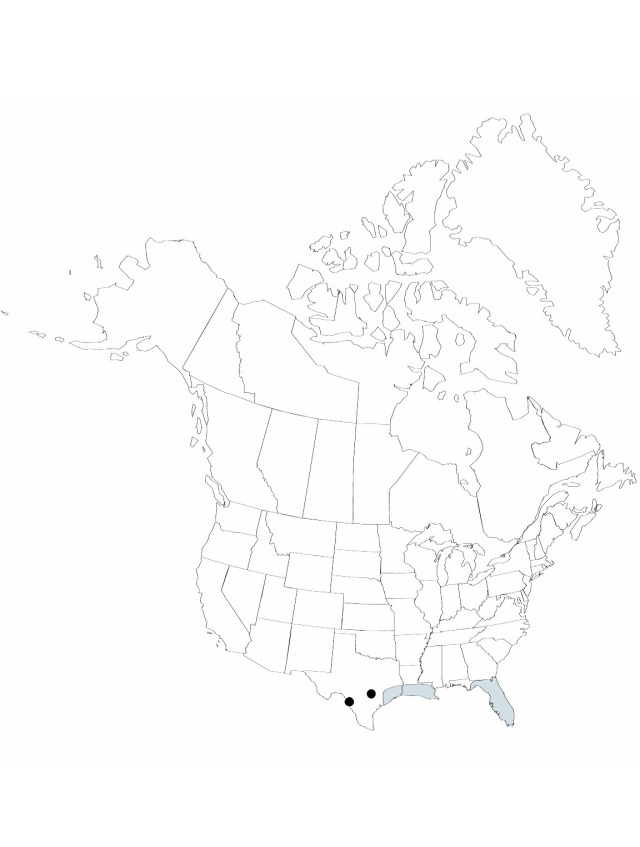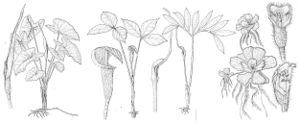Pistia stratiotes
Sp. Pl. 2: 963. 1753.
Roots to 50 cm, with short branches. Leaves light green to grayish green, 2–15 (–20) cm, spongy, pubescence dense, white; major veins 5–13 (–15), nearly parallel, abaxially prominent. Inflorescences: spathe white to pale green, convolute basally, slightly constricted above middle, spreading apically, pwhite to pale green, pubescent outside, glabrous inside; spadix adnate to spathe more than 1/2 its length, shorter than spathe; axis naked at base of staminate part and sometimes extending beyond staminate flowers. Flowers: staminate flowers (2–) 6–8, in single whorl around central stalk, stamens 2, connate; pistillate flower solitary; ovariesy 1-locular, 4–5 mm; ovules 4–15 (–20), orthotropous; styles ca. 3 mm; stigmas obtuse, with small hairs.; staminate flowers (2–) 6–8, in single whorl around central stalk; stamens 2, connate. Fruits with thin pericarp. Seeds light-brown, cylindric, 2 × 1 mm. 2n = 28 (India, Borneo).
Phenology: Flowering mainly late summer–early winter (although; plants have been collected in flower in almost all months).
Habitat: Slow-moving streams, canals, drainage ditches, ponds, lakes, and springs
Elevation: 0–10 m
Distribution

Fla., La., Tex., Mexico, West Indies, Central America, South America, Asia, Africa, Pacific Islands, Australia
Discussion
Pistia stratiotes has been collected north and west of its U.S. range in Arizona, California, Georgia, Missouri, New Jersey, Ohio, and South Carolina. These are probably populations that do not persist. Although P. stratiotes is often reported as occurring from Florida to Texas, I saw no verifying herbarium specimens from Alabama or Mississippi, nor were any populations located during my fieldwork in those states.
Selected References
None.
